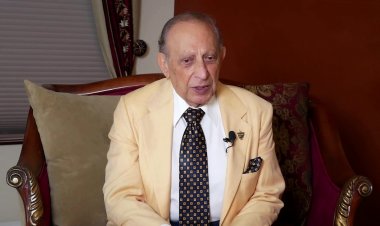Austrian scientists race to reveal melting glaciers' secrets

Jumping from rock to rock to rock over a creek formed off Austria's Jamtal glacier, scientist Andrea Fischer worries that precious scientific data will be irreversibly lost as the snow and ice melt faster than ever.
"I couldn't have imagined that it would ever melt as dramatically as this summer... Our 'archive' is melting away," says the glaciologist.
Fischer -- vice director of the Institute for Interdisciplinary Mountain Research at the Austrian Academy of Sciences -- has spent more than 20 years surveying Jamtal and four other Alpine glaciers across Austria's highest peaks for the oldest areas of ice.
For scientists looking to reconstruct the Earth's climate in the distant past, such ice formations are a unique time capsule stretching back thousands of years.
The glaciers contain an invaluable treasure trove of data -- as they grew, the ice encapsulated twigs and leaves, which can now be carbon-dated, Fischer explains.
But now the glaciers are melting rapidly -- including the one in the remote and narrow Jamtal valley, not far from where tourists found the stunningly preserved 5,300-year-old mummy of Oetzi, the Iceman, in the 1990s.
Temperatures in Europe's highest mountains have risen by nearly two degrees Celsius in the past 120 years -- almost double the global average, according to the International Commission for the Protection of the Alps (CIPRA).
The Alps' roughly 4,000 glaciers have since become one of the starkest signs of global warming.















